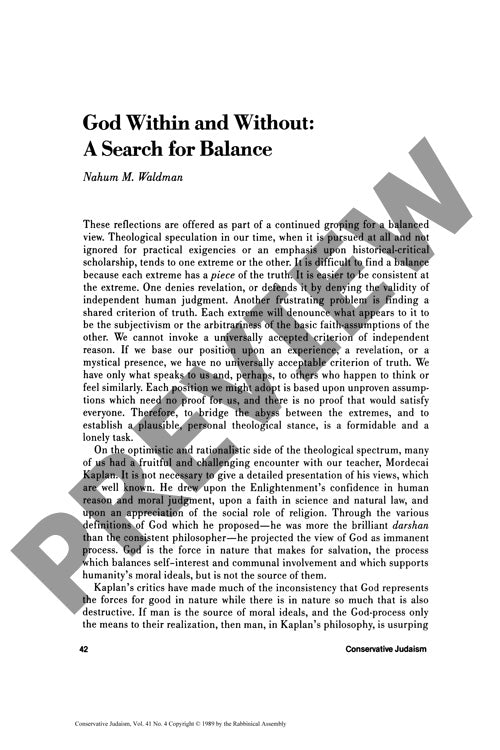God Within and Without a Search for Bala
Couldn't load pickup availability
The fundamental tension between divine immanence and transcendence continues to challenge modern Jewish theology, demanding fresh approaches to bridge seemingly irreconcilable positions. Through reflective analysis of three major theological frameworks, a Kabbalistic model emerges as a promising resolution to this theological impasse. Mordecai Kaplan's rationalistic immanentism reduces God to natural processes supporting moral ideals, while Orthodox authorities like Isaiah Leibowitz and Joseph Soloveitchik emphasize absolute divine transcendence at the expense of human moral agency. Between these extremes lies a middle path that validates human reason in interpreting religious tradition. While Kaplan's theology strips divinity of essential mystery, Orthodox positions inadequately account for Judaism's historical evolution and human religious agency. Using feminist participation in Jewish ritual as a case study, the analysis demonstrates how reasoned interpretation of halakhic sources can legitimately guide religious practice. The Kabbalistic paradigm, with its integration of the transcendent Ein-Sof and manifest sefirot, offers a sophisticated theological framework that preserves both divine mystery and human religious autonomy while reconciling competing conceptions of God's nature and accessibility.

More Information
-
Physical Description
-
Publication Information
Published 1989
ISBN
-
Publication Credits
Nahum Waldman

